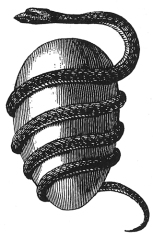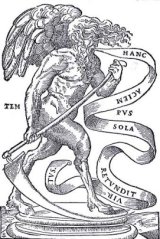Those people coming from the first man and woman in a certain way got infected by the wrong choice these people made.

God gave a free will to the human beings He created. He did not want them to go wrong or to have it bad, but because they objected to His ruling or His position, He gave them the right to take care of the world themselves how they wanted to do it themselves. He had given them the free will and now they were totally responsible for all the choices they were going to make themselves.
God Himself does not causes bad things to happen to His people but He allows the things to evolve like man lets it evolve and as such allows also to happen things which are not so pleasant for man but are consequences of their acts, they had chosen themselves to do. God allowing such things, good and bad, to happen to man sometimes is to remind man of his position and to let them feel that sin has a price.
You should look at the Creator as a Father who does like any parent, wanting to have the best for his kids, also giving them instructions not to be mean, but to help them on their way of growing up. The omniscient God can see what the ravages of man’s sin looks like, and He desires to spare them for such bad things. For that reason He also gave His Word so that man could learn from it, could see how other people in the past lived their way in this world of good and evil.
God knew very well why it would not be good for man to eat of the Tree of the Knowledge of Good and Evil. It was not because He didn’t want them to taste something good or wanted to hold something good back from them. God was well aware of the destruction and devastation knowledge of good and evil could cause to man.
As children of those who chose the other way than God had prepared for man we still have to reap the effects of that choice today. Man should come to recognise that all he has to to endure in life is not placed on them by the Divine Creator God, nor by an extraterrestrial devilish being called Satan, but by our own choices and unwillingness to submit to God His direction for our life.
God does not hate man nor does He hate the world, but He would like it that man comes to love Him and comes to recognise Who He is and what He has done for mankind. Throughout history God always has been around and was always ready to be there for those who wanted Him to have Him nearby and helping them.
God has been very patient with man, but He also wanted to limit the time man would be going on his own stupidity. Therefore he offered mankind His Plan with the promise of a saviour, who would shown man Who God is and how to come closer to God. To give mankind a second chance, God provided what is called a second Adam. Again God provided a ‘new’ fresh ‘man‘ of flesh, blood and bones, who could proof that man was able to put his own man’s will aside to come to do the Will of God. Jesus is that promised one who managed to do that. He is the only begotten beloved son of God who is given to us to show us the Way to God and who made things told in the ancient times clear, giving insight to those who did not see yet.
In the next series we shall look how God kept His first promise made in the Garden of Eden, to bring forth a person who was to bring an end to the sting of death. We shall look how God repeated several times His promise of a solution against the curse of death and how He provided signs to which we could get to know when it was the moment that promise became a reality, so that nobody should doubt that the promise made in the garden had become into the flesh. (John 1:1)
In the next postings we shall show you how in the ancient times God prepared the way for that light for mankind to come and how hope could grow to come closer to the times of the coming Kingdom of God when the best theocratic system would be there to have this world organised in the best way, bringing peace to all people.
+
Preceding articles
A solution for a damaged relationship 1 All vegetation for food except one fruit
A solution for a damaged relationship 2 Sinful nature
++
Additional reading
- It is a free will choice
- Choices
- For those who make other choices
- Your life the sum total of all your choices
- When Bad Things Happen
- Bad things no punishment from God
- The 1st Adam in the Hebrew Scriptures #6 Curse and solution
- The 1st Adam in the Hebrew Scriptures #7 Promise and solution
- The 1st Adam in the Hebrew Scriptures #8 Looking for the 2nd Adam
+++
Further reading
- The Heart of the Problem
- Fundamentals of Human Nature Part II
- Look Yourself in the Mirror
- The Choice is yours…
- Making Choices
- A Victim of My Own Choices
- The Truth About the Conscience
- Triggered
- Get the Correct Mental Grasp
- When darkness looms 2
- From good to bad
- Battle lines?
- Dare I Ask: What If…..?
- Our Parents Were Right.
- People: Good, Bad, & all those in between
- I Made My Decision
- The Price is Right: How a Game Show Reflects Real Life
- Why do bad things happen?
+++















